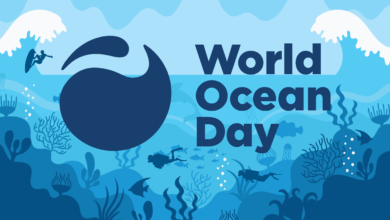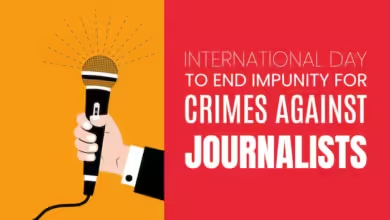When Inclusion Fails: The Legal and Moral Crisis of Discrimination Against A Differently Abled Child

Introduction
In a deeply troubling incident that has sparked widespread outrage, a Nigerian father recently took to social media to share his experience of discrimination at a supermarket in Ilorin, Kwara State. According to his account, staff at the Emirate Mall refused entry to his baby daughter because of her physical condition. The child, who is differently abled, was reportedly barred from entering the store on account of her appearance, leaving the father heartbroken and humiliated.
The story, which quickly went viral on social media, has sparked widespread outrage and urgent calls for reform in how public spaces in Nigeria treat differently abled individuals—particularly children. While many expressed solidarity with the family, others reflected on the deeper societal, legal, and cultural dysfunctions that allow such acts of exclusion to occur without consequence.
Legal Framework: Rights Ignored and Violated
Nigeria’s Child’s Rights Act, 2003, a domestication of the United Nations Convention on the Rights of the Child (CRC), is clear: every Nigerian child, regardless of ability, status, or circumstance—is entitled to equal protection under the law. The Act goes further to provide explicit guarantees against discrimination and unequal treatment.
Key provisions, such as Sections 3, 11, and 15, affirm a child’s right to dignity, freedom from inhuman or degrading treatment, and access to special protections for those who are differently abled. Denying a child entry into a public space on account of her physical condition contravenes these provisions and undermines the fundamental principle that every child matter.
What happened in Ilorin is not an isolated oversight, it is a breach of national law and a reflection of broader systemic neglect. Worse still, it communicates to differently abled children and their families that their presence is not welcome in the very spaces that should be most inclusive.
Nigeria’s International Commitments
Nigeria is also bound by international conventions that reinforce the rights of all children, including those who are differently abled. These include the United Nations Convention on the Rights of the Child (CRC) and the United Nations Convention on the Rights of Persons with Disabilities (CRPD).
Article 2 of the CRC prohibits discrimination of any kind, including on the basis of physical or mental status. Article 23 specifically affirms that differently abled children must enjoy a full and decent life, in conditions that ensure dignity, promote self-reliance, and facilitate active participation in the community.
The CRPD further strengthens this mandate. Article 7 focuses on the rights of differently abled children, while Article 9 places an obligation on both government and private entities to ensure accessibility to all public spaces and services. Nigeria ratified both conventions, making their provisions binding and enforceable.
The Ilorin incident thus represents not just a violation of local law, but a breach of Nigeria’s solemn international commitments to protect and include all children equally.
Culture, Stigma, and Systemic Failure
Despite legal protections, cultural attitudes often remain one of the greatest barriers to inclusion. In many communities across Nigeria, being differently abled is still wrongly viewed through a lens of shame, punishment, or spiritual burden. These harmful narratives, perpetuated by ignorance, religious misinterpretation, and fear leave children excluded, silenced, and in many cases, invisible.
What occurred in that mall is symptomatic of this cultural stigma. For a staff member to look at a child and determine she should not be seen by other customers or allowed into a public space speaks volumes about the deep prejudice that exists. It also highlights the total lack of training, accountability, and awareness in institutions that interact daily with the public.
Institutional Accountability
Public-facing businesses, especially those frequented by families, must be held accountable to basic standards of inclusion. The management of Emirate Mall—and others like it, should be required to train staff on human rights, customer service ethics, and particularly on the rights of differently abled individuals. Government agencies, including the National Human Rights Commission, should open an investigation into the incident and ensure appropriate sanctions and redress.
At the state level, the Kwara State government must ensure the full implementation of the Child’s Rights Act (2003), which many states have passed into law but have failed to enforce. Municipal authorities should also adopt minimum accessibility and inclusion standards as part of operating requirements for public establishments.
This is also a moment for corporate Nigeria to reflect. Beyond compliance, there is a need for a cultural shift that sees inclusion not as charity or favour, but as a right and a necessity.
Towards a More Inclusive Society
Differently abled children are not objects of pity. They are human beings with thoughts, dreams, potential, and an equal right to exist in every space society creates, whether in education, recreation, worship, or commerce.
True safeguarding in any society must include the right to belong. Every mall, school, hospital, office, and public institution must ask: are we welcoming to every Nigerian child, regardless of their ability? If not, we are failing in our duty of care.
Inclusion is not a trend; it is a reflection of our shared humanity. It demands not just policy but compassion, not just awareness but commitment. Nigeria cannot claim to be a nation that values children while continuing to marginalize those who are differently abled.
Conclusion
This case must not be forgotten when the outrage fades from timelines. It must be documented, investigated, and used as a pivotal learning moment for all sectors, public and private alike. It is time for a nationwide awakening on the rights and dignity of differently abled children.





